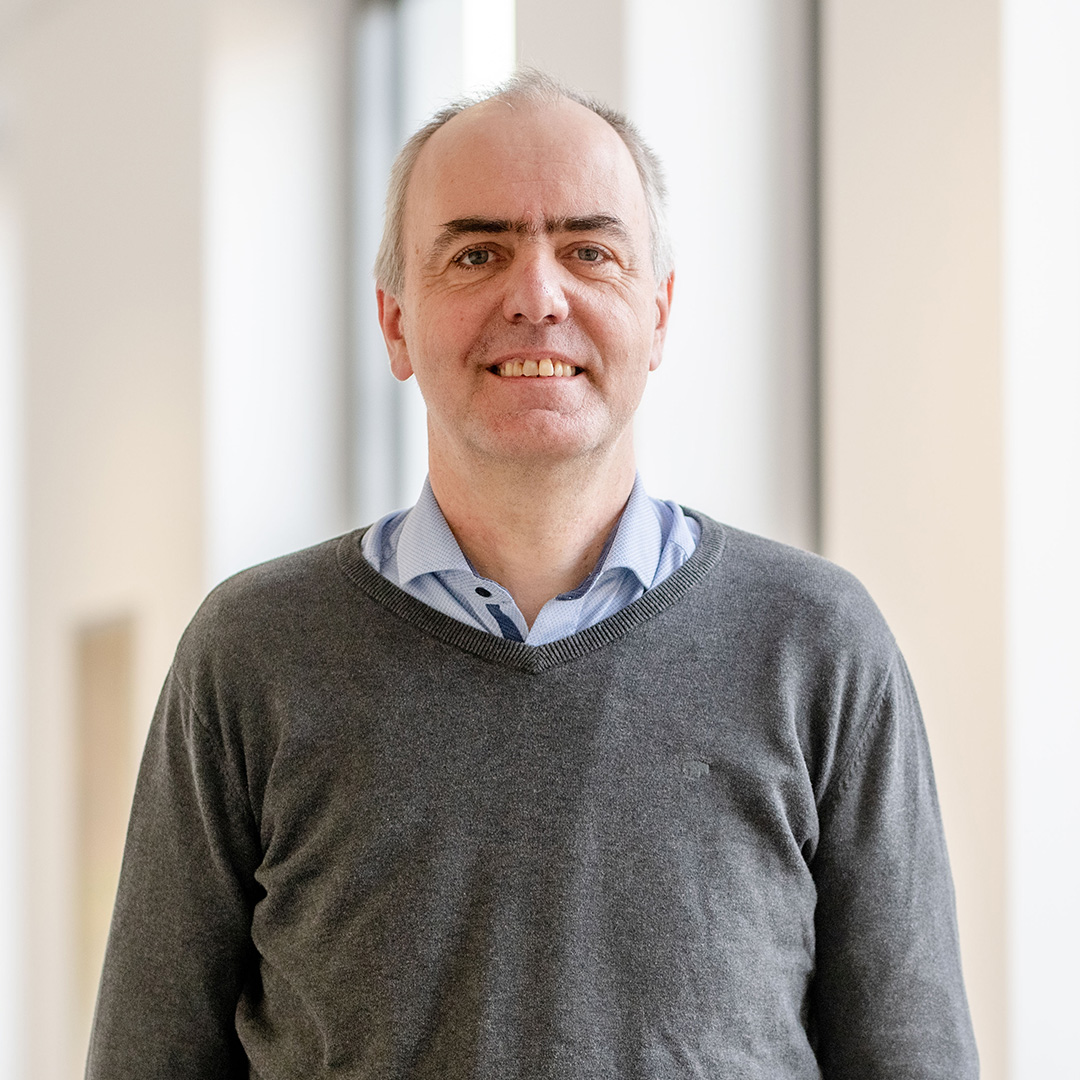
Prof. Dr Achim von Keudell
Experimental physics, especially physics of reactive plasmas
Research
The focus of the research activity is the fundamental understanding of plasma-surface interaction. To this end, numerous experiments are carried out in reactive plasmas to identify the prevailing reactive particle fluxes and the resulting surface processes. Optical in-situ diagnostics and mass spectroscopy are often used as diagnostics. In the past, a particle beam experiment in particular was developed that allows heterogeneous surface reactions to be studied and measured.
Current research activities
The group "Reactive Plasmas" deals in a general sense with all processes at the reactive plasma-surface interface. Three major topics have emerged:
Elementary mechanisms Particle beam experiments are used to investigate individual processes of the interaction of atoms, ions and UV photons with surfaces. On the one hand, these were biological samples such as endospores or biomolecules to elucidate basic mechanisms in plasma sterilisation, but also metallic samples to study elementary processes of target poisoning in magnetron discharges.
Non-equilibrium atmospheric pressure plasmas: The topic of atmospheric microplasmas has been worked on intensively for many years and plasma beam sources have been optimised with regard to their suitability for numerous applications. New concepts for mass spectrometry at atmospheric pressure or for the analysis of ion currents have been developed. Currently, this research is being pursued within the framework of SFB 1316, which is looking for an optimal combination of plasma and catalysis as well as plasma and electrolysis.
Pulsed magnetron plasmas: The production of thin oxide and nitride layers in pulsed magnetron discharges is being investigated as basic research for the HPPMS application (High Power Pulsed Magnetron Sputtering). Special attention is paid to the adjustment of the ion energy distribution by variable biasing on the substrates. Special ion energy analysers were set up for this purpose. The layer growth is monitored in-situ with infrared spectroscopy and ellipsometry. In the field of weakly magnetised process plasmas, pulsed magnetron plasmas are a new branch of research worldwide. Short-term high power coupling generates fully ionised plasmas which allow to control the layer synthesis in a unique way. All processes in the plasma are time-dependent and require a precise analysis of the transients.
Future research activities
Due to the very broad expertise in the field of reactive plasmas and their interaction with surfaces, there are always links to processes in plastics processing, microstructure technology or medical applications of plasmas.
The person
Training
Professional career
Memberships and commitment
Photo: RUB, Marquard.

